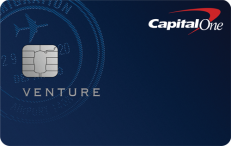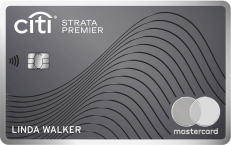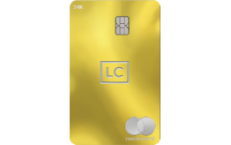Which is more expensive: Visa vs. Mastercard?
Since none of the Discover cards charges an annual fee no matter what benefits are available to you, we removed them from the consideration.
Visa and Mastercard cards are issued by different banks and have different sets of benefits. Therefore, their annual fees may vary considerably. Visa and Mastercard cards may have various features, benefits and perks. They may be just cards that simply allow you to purchase items on credit, or may also reward you for purchases, offer 0% APRs for a limited period, and give access to card network benefits.
While you can find no annual fee Visa and Mastercard cards, those cards will have minimum benefits. The average low annual fee among Visa and Mastercard cards that charge annual fees is around $125. And the maximum annual fees can be extremely high.
Here's a list of some expensive Visa and Mastercard credit cards:
- Chase Sapphire Reserve®*: $795 annual fee
- JP Morgan Reserve®*: $595 annual fee
- Stratus Rewards Visa*: $1,500 annual fee
- Dubai First Royale Mastercard*: ~$2,000 annual fee
- Mastercard® Gold Card™: $1,199 ($349 for each Authorized User added to the account)
- Mastercard® Black Card®: $699 ($249 for each Authorized User added to the account)
- Citi® / AAdvantage® Executive World Elite Mastercard® (expired offer): $595 annual fee
Visa vs. Mastercard vs. Discover: who gives better exchange rates?
A foreign exchange rate is how much your country's currency is worth in a foreign currency. You'll usually pay a different currency exchange rate depending on the card network because Visa, Mastercard, and Discover determine exchange rates when you use a credit or debit card to pay for purchases abroad.
You cannot know the exact exchange rate in advance (and not even at the point of the purchase). However, when compared to historic Visa vs. Mastercard exchange rates, Mastercard generally provides better exchange rates. If we add Discover to the comparison, then it will land between Mastercard and Visa.
Another way to save on exchange rates is to pay in a foreign currency when using your card overseas. Shops usually use the most unfavorable exchange rates if you choose to pay in US dollars, while your bank will use the best rate. If you are curious about exchange rates, you can check exchange rates online using the Visa exchange rate calculator or Mastercard exchange rate calculator. Other networks do not have such online tools.
Which is better: Visa, Mastercard, or Discover?
There is no one answer to this question. What matters most are fees, interest rates, rewards, bonus offers and other benefits that are determined by issuers and not by credit card networks.
For some people, Visa and Mastercard may provide additional features that act as additional perks. But most people don't even need to waste their time comparing card networks. What they need to focus on is what banks offer.
However, frequent travelers may want to have a Visa or Mastercard card in their pocket, especially if they travel abroad a lot. Even if they prefer a Discover card, having a Visa or Mastercard as a backup option is a good move as worldwide acceptance of credit cards is uneven, even for Visa and Mastercard.
Keep in mind that the cards you can qualify for will depend on your credit. The best credit card offers (including benefits and perks) are offered to people with good and excellent credit. People with average credit can also find decent credit card offers. Even if you build credit, you may also have good options among credit cards for bad credit.
*Non-Monetized. The information related to Chase Sapphire Reserve® Credit Card, JP Morgan Reserve®, Stratus Rewards Visa, Dubai First Royale Mastercard were collected by Credit-Land.com and has not been reviewed or provided by the issuer of this product/card. Product details may vary. Please see issuer website for current information. Credit-Land.com does not receive commission for this product.










